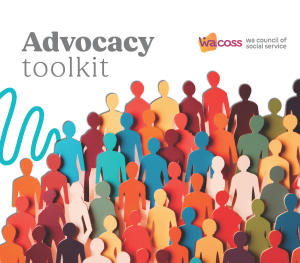The Western Australian Council of Social Service Inc. (WACOSS) welcomes the opportunity to make a submission to the review of the 2019-2022 Code of Conduct for the Supply of Electricity to Small Use Customers.
WACOSS is the peak body for the community services sector in Western Australia and works to create an inclusive, just and equitable society. We advocate for social and economic change to improve the wellbeing of Western Australians, and to strengthen the community services sector that supports them. WACOSS is part of a network consisting of National, State and Territory Councils of Social Service, who advance the interests of people on low incomes and made vulnerable by the systems in place.
WACOSS is also a member of the Electricity Code Consultative Committee (ECCC) 1 and has been actively involved in the process of developing the recommendations to amend the Code as outlined in their Draft Review Report.2 In addition, WACOSS provides the following responses to the questions outlined in the Draft Review Report:
Part 1 of the Code: Preliminary
Question 1.
While contractual flexibility may provide some benefits to both customers and retailers, WACOSS believes that it is important to ensure the Code’s ability to provide a minimum safety net for customers is maintained. At this time, WACOSS suggests that all clauses listed in clause 1.10 should remain, and does not suggest any changes. WACOSS considers that clauses that include the words “unless otherwise agreed” should not also be listed in clause 1.10.
Question 2.
The Code’s protections provide a minimum safety net for customers, but some of these protections may be set aside when customers enter a non-standard contract. To help customers make an informed decision, retailers should uphold the responsibility to clearly outline the difference between a standard contract and a non-standard contract. WACOSS believes that the Code should be amended to require retailers to inform customers in writing of the difference between a standard form contract and non-standard contract and if they have contracted out of one or more protections of the Code.
Part 4 of the Code: Billing
Question 3.
The National Energy Retail Rules (NERR) applicable in New South Wales, Queensland, South Australia, Tasmania and the Australian Capital Territory require retailers to notify customers on a fixed term market retail contract that their contract is coming to an end between 40 and 20 business days before the end date of the contract. Should this matter be taken up by the ECCC, WACOSS proposes that it be addressed in the Code and that the new provisions follow rule 48 of the NERR to provide a level of consistency with other jurisdictions.
Question 4.
Electricity bills are a key way to inform people about their plan and usage and are the primary touchpoint between consumers and their electricity provider. WACOSS believes that the amount of information currently included on a bill is appropriate and that retailers should provide sufficient rationale for the removal of any bill items.
Although bill digitalisation offers new opportunities for retailers to simplify bill design by providing links to detailed or complex information, not all customers are, or will be, digitally enabled. For example, people on low incomes are significantly impacted by the affordability of access to digital technologies and internet services.3 Although improving in some areas, there remain ongoing barriers to accessing digital technologies and affordable, reliable internet access or mobile network coverage in regional and remote communities across Australia.4 As outlined in the Draft Review Report, customers who do not have, or have only limited, access to digital technology should not miss out on important information because the information is only available in a digital format.
WACOSS believes that all consumers should have access to all bill information, irrespective of their ability to access digital technology.
In addition, Western Australians have diverse levels of general and digital literacy and experience using digital technologies and the internet.5 Even when consumers have agreed to receive their bill electronically, consumers may have difficulty in confidently navigating and critically evaluating a digitalised bill with links to separate and more complex information. Some older Western Australians who encountered modern technologies later in life or people with disability, for example, may need considerable support to engage with digital technologies and digitally-enabled services. For this reason, WACOSS does not support the amendment of clause 4.5 to allow retailers to provide information in different formats for customers who have agreed to receive their bill electronically as it may place some customers at a disadvantage when accessing important information.
Part 6 of the Code: Payment difficulties and financial hardship
Question 5.
Energy is an essential service that should, at all times, be accessible, affordable and equitable. Open and frequent communication about retailer policies and assistance programs has proven to be key in maintaining high customer satisfaction, particularly during challenging times such as the current coronavirus pandemic.6 By establishing an entitlement to assistance for all residential customers, it may be clearer for customers what their rights are and improve customer satisfaction, while ensuring that no customer is denied assistance. Improving access to financial relief may also serve as an opportunity for retailers to more proactively prevent customers from getting into debt. The advantage for retailers is that they do not have to spend time and resources assessing whether a customer is experiencing payment difficulties or not. WACOSS supports an amendment to the Code to require retailers to offer a payment extension and an instalment plan to all residential customers.
Question 6.
The seasonal nature of energy consumption during the peak summer period in Western Australia and the resultant size of the bills, mean that low-income households, particularly in regional areas, can be at substantial risk of bill shock.7 Higher bills may divert money away from other regular expenses necessary for quality of living, such as food or healthcare, and can impact personal and family health. Offering bill smoothing as a form of assistance may provide advantages for not only low-income households, but all residential customers, as it reduces the impact of seasonal energy usage and makes energy costs more predictable.8 WACOSS strongly supports an amendment of the Code to require retailers to offer bill smoothing to all residential customers as a form of assistance.
Question 7.
The National Energy Customer Framework (NECF) provides protections that recognise energy as an essential service, including a process for early identification of vulnerable customers by the retailer. Retailers are required under the NECF, by law, to offer and apply payment plans for customers the retailer believes are having difficulty paying their bills.9 A simple analysis of payment patterns that demonstrate a customer’s repeated difficulties in paying their bills should be sufficient to trigger a belief in the retailer that a customer requires support (in the form of a payment plan or other payment assistance). Informing the customer of the payment assistance supports available should occur at this early stage in the process of retailer identification to help prevent customers from entering utility debt or severe hardship. WACOSS supports an amendment of the Code to require retailers to offer a payment extension and an instalment plan to customers who the retailer otherwise believes are experiencing repeated difficulties in paying their bill or require payment assistance.
Question 8.
Effective, transparent communication from the retailer to the customer should be the touchstone for any payment assistance plan. According to the Australian Energy Regulator (AER), ‘what information the customer is given and how it is given…are key to meaningful compliance with the law and achieving better outcomes’.10 WACOSS supports the proposal that clauses 6.4(2) and (3) of the Code be amended to clarify that a retailer cannot amend an instalment plan without obtaining the customer’s consent.
Question 9.
The Victorian Energy Retail Code requires retailers to provide standard assistance to all residential customers which allow customers to: make equal payments at a standard interval; select a payment interval; extend the pay-by date of their bill and to make payments towards their accounts in advance. These assistance measures are to help customers who may be experiencing short-term difficulty paying a bill to avoid getting into arrears with their retailer. For customers who are in arrears of $55 or more, or in more severe types of payment difficulty where they cannot afford to pay for their ongoing energy use, the Victorian Energy Retail Code requires retailers to provide additional, tailored assistance that makes it easier for them to pay for their on-going energy use, repay their arrears and lower their energy costs. Some of the tailored assistance measures that retailers must provide under the Victorian Energy Retail Code include:
- Specific advice about the likely costs of the customer’s future electricity use and how this cost may be
- Practical assistance to help the customer lower their electricity costs, such as energy 11
- Putting repayment of arrears on hold, and paying less than the full cost, for an initial period 6 months, which may be
- The retailer proactively proposing an amendment to an instalment plan if the customer has missed a payment under their current
WACOSS submits if Victorian retailers can implement these organisational practices and are required to provide continued assistance to customers, then Western Australian retailers should be able to ensure all customers experiencing energy bill debt are contacted and provided with comparable information about supports available to them. Equitable access to assistance should be extended nationwide.
Question 10.
Following this, WACOSS supports options b and c to amend clause 6.7 to:
- by providing that a retailer must offer a (revised) instalment plan if the customer reasonably demonstrates to a retailer that the customer cannot meet the conditions of their payment extension or instalment plan; and/or
- consistent with clause 30(4)(b) of the Water Code
Part 7 of the Code: Disconnection
In March 2020, a disconnection moratorium was put in place by the State Government to assist electricity residential customers experiencing hardship as a result of COVID-19. This was partly responsible for electricity residential customer disconnections decreasing in 2019/20 for the first time in three years. The disconnection moratorium has been extended until 30 June 2021.For the three years prior to the moratorium, however, the percentage of electricity disconnections has increased, with 2018/19 seeing it exceed 2.0 per cent for the first time since the Economic Regulation Authority commenced reporting on electricity retailer performance in 2007.12
To reduce the high residential electricity disconnection rate in Western Australia, WACOSS strongly supports the recommendation for setting an amount below which disconnection is not allowed.Western Australia continued to have the highest residential electricity disconnection rate among the comparable jurisdictions of News South Wales, Victoria and South Australia, with the gap between WA and the next highest widening by 0.7 percentage points in 2018/19.13 Electricity disconnection can have a range of detrimental impacts for households already struggling with everyday living costs, including loss of food, an inability to bathe or to heat or cool rooms, or to maintain connection with relatives and the wider world, leading to health problems, anxiety and emotional disorders.14 Because of the severity of these impacts, it is commonly acknowledged that disconnection for non- payment should be a last resort measure.15
WACOSS believes that this amount should be in line with that set by Australian Energy Regulator and Victoria’s payment difficulty framework16 at $300.
Family and domestic violence
Essential services can be used by perpetrators of family violence to coerce and cause harm as a form of economic or financial abuse, due to the critical function essential services play in daily life.
Financial abuse is one of the most powerful ways a perpetrator can keep their partner or family member trapped in an abusive relationship and may also impact on that person’s ability to stay safe once they leave the relationship. As essential service providers, energy retailers have an important role to play in protecting customers’ account information, privacy and personal security and supporting customers and employees affected by family violence. WACOSS strongly supports the
ECCC’s proposal to require retailers to have a family violence policy and new standards of conduct to boost protections for customers, with better training for staff, improved account security and debt management practices, and safe communication methods for those affected by family and domestic violence.
Question 11.
The severity of impacts of disconnection, particularly for households experiencing hardship (as outlined above), when combined with the severity of impacts of family and domestic violence, may undermine a person’s safety, mental and physical health, and inhibit their access to material basics and economic and emotional wellbeing. Customers affected by family violence often find it difficult to maintain engagement with services (including energy retailers). WACOSS proposes that retailers should only be able to respond to disengagement in ways appropriate to the customer’s situation, including being prohibited from disconnecting affected customers.
Following consultation with our member network, WACOSS proposes a preliminary period of six months following a customer’s disclosure of family and domestic violence for which disconnection action by retailers should be prohibited. Retailers should provide an option for further extension if necessary, after careful consideration of a customer’s circumstances.
1 Electricity Code Consultative Committee (2020)
2 Electricity Code Consultative Committee (2020) ‘Draft review report:
2019-22 Review of the Code of Conduct for the Supply of Electricity to Small Use Customer’
3 Government of Western Australia (2020) Digital Inclusion in Western Australia: A Blueprint for a Digitally- Inclusive State
4 Better Internet for Rural, Regional & Remote Australia (2018) Regional Telecommunications Independent Review Committee (RTIRC) Submission
5 Government of Western Australia (2020) Digital Inclusion in Western Australia: A Blueprint for a Digitally- Inclusive State
6 J.D. Power (2020) ‘Electric Utilities’ Good Deeds—and Communication about Them—Pay Off During Pandemic, J.D. Power Finds’, Press Release
7 WACOSS (2020) Cost of Living Report
8 AGL (2020). ‘How do smooth bill payments work?‘ Webpage8 National Energy Retail Law Section 50(1)
10 AER, Hardship Guideline Issues Paper, December 2018, p.12
11 On 29 December 2020, Energy Minister Bill Johnston announced the new Household Energy Efficiency Scheme for Western Australia.
12 WACOSS (2020) Cost of Living Report
13 WACOSS (2020) Cost of Living Report
14 St Vincent de Paul Society and Alviss Consulting (2016) ‘Households in the dark Mapping electricity disconnections in South Australia, Victoria, New South Wales and South East Queensland’ Report
15 Essential Services Commission (2017) ‘Payment difficulty framework: Final Decision’ Report
16 Essential Services Commission (2018) ‘Energy Retail Code review 2016 (customers facing payment difficulties)’ Report




